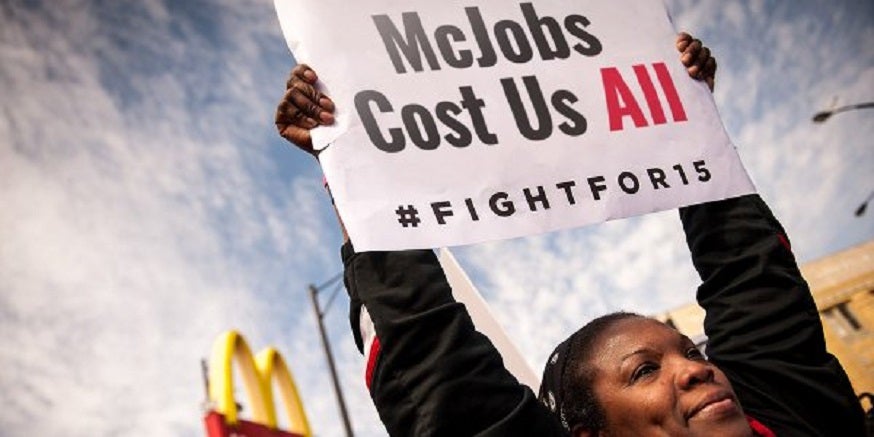Uncategorized
$15 Wage Would End Hunger for 1.2M

The Teamsters have been a part of a worker movement to raise the minimum wage to a $15 “living wage” standard that would allow workers to better support their families.
But how much of a difference would such a hike in the wage floor make to those affected? A new report shows it would be dramatic, stopping nearly 1.2 million American families from going hungry by 2023. Its impact would significantly help minority groups and single-parent households in particular.
As of 2014, the U.S. Department of Agriculture estimated that 14 percent of U.S. households were classified as food insecure and just over 19.2 percent of all households with children were food insecure. Of those who would benefit from a $15 hour wage, 44 percent would be black and Latino households. Almost 30 percent would be single-parent households.
A “minimum wage increase can make a major impact on hunger among families with working members, but who face too large of a budgetary squeeze to afford enough food, each and every week,” wrote William M. Rodgers III of The Century Foundation.
“An increase in the minimum wage enables households to worry less about meeting their food needs, to maintain a supply of food, to reduce their reliance on low-cost food, and to afford more balanced meals,” he added.
How can anyone say that this nation is on the right track economically when so many continue to struggle with meeting their most basic needs? Workers who were able to stay employed during the Great Recession saw their incomes drop then. But instead of growing since, wages have remained stagnant for the vast majority of hard-working Americans.
Studies show that the minimum wage isn’t a job killer. Instead, it gives everyday Americans a chance to earn a fair wage that allows them to put food on the table and provide for their families. That’s what workers need and deserve.